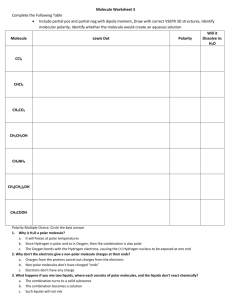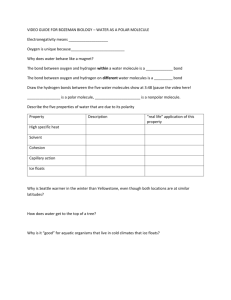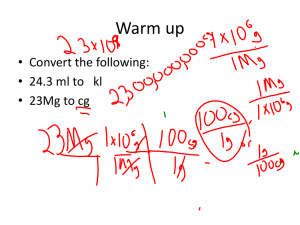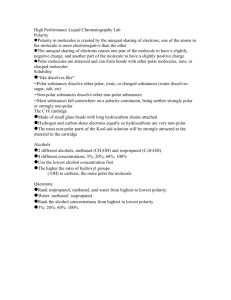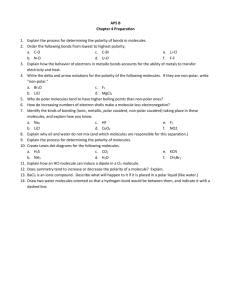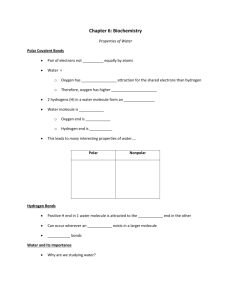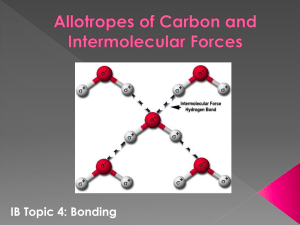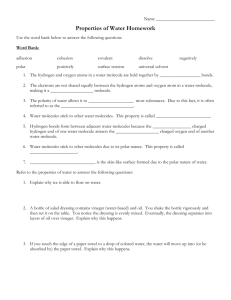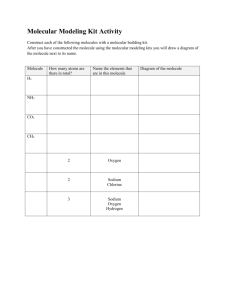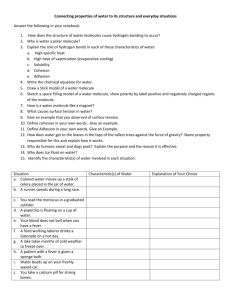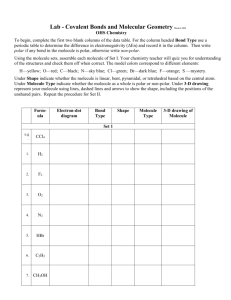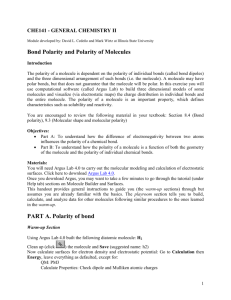Molecular Polarity Notes and Hints -
advertisement
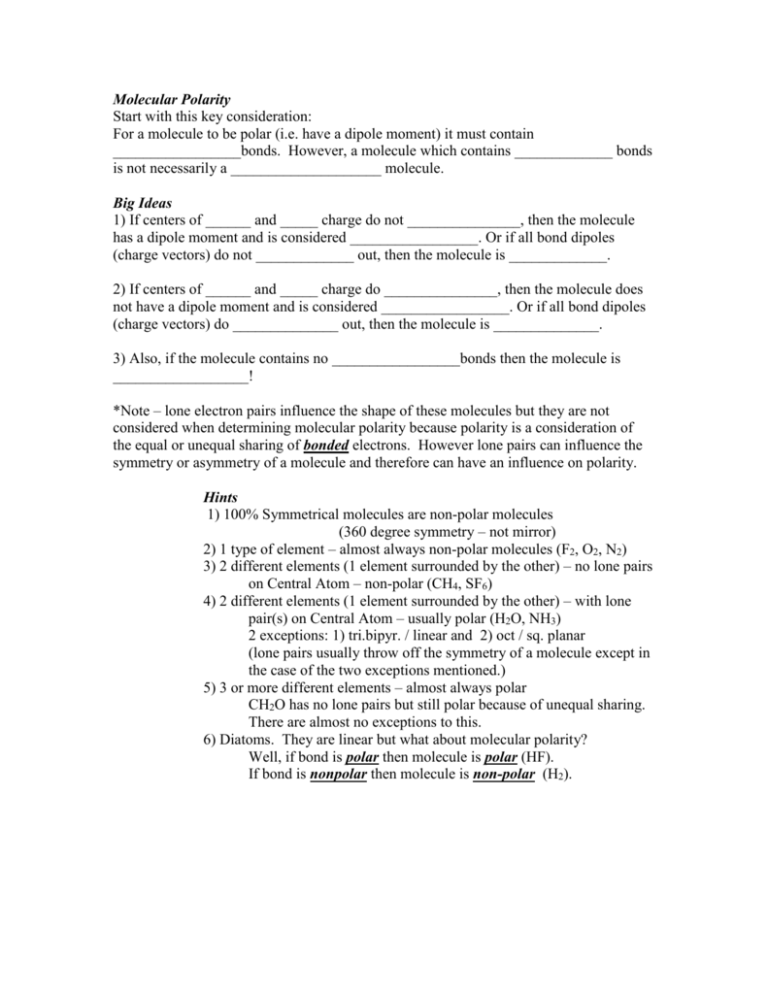
Molecular Polarity Start with this key consideration: For a molecule to be polar (i.e. have a dipole moment) it must contain _________________bonds. However, a molecule which contains _____________ bonds is not necessarily a ____________________ molecule. Big Ideas 1) If centers of ______ and _____ charge do not _______________, then the molecule has a dipole moment and is considered _________________. Or if all bond dipoles (charge vectors) do not _____________ out, then the molecule is _____________. 2) If centers of ______ and _____ charge do _______________, then the molecule does not have a dipole moment and is considered _________________. Or if all bond dipoles (charge vectors) do ______________ out, then the molecule is ______________. 3) Also, if the molecule contains no _________________bonds then the molecule is __________________! *Note – lone electron pairs influence the shape of these molecules but they are not considered when determining molecular polarity because polarity is a consideration of the equal or unequal sharing of bonded electrons. However lone pairs can influence the symmetry or asymmetry of a molecule and therefore can have an influence on polarity. Hints 1) 100% Symmetrical molecules are non-polar molecules (360 degree symmetry – not mirror) 2) 1 type of element – almost always non-polar molecules (F2, O2, N2) 3) 2 different elements (1 element surrounded by the other) – no lone pairs on Central Atom – non-polar (CH4, SF6) 4) 2 different elements (1 element surrounded by the other) – with lone pair(s) on Central Atom – usually polar (H2O, NH3) 2 exceptions: 1) tri.bipyr. / linear and 2) oct / sq. planar (lone pairs usually throw off the symmetry of a molecule except in the case of the two exceptions mentioned.) 5) 3 or more different elements – almost always polar CH2O has no lone pairs but still polar because of unequal sharing. There are almost no exceptions to this. 6) Diatoms. They are linear but what about molecular polarity? Well, if bond is polar then molecule is polar (HF). If bond is nonpolar then molecule is non-polar (H2).
